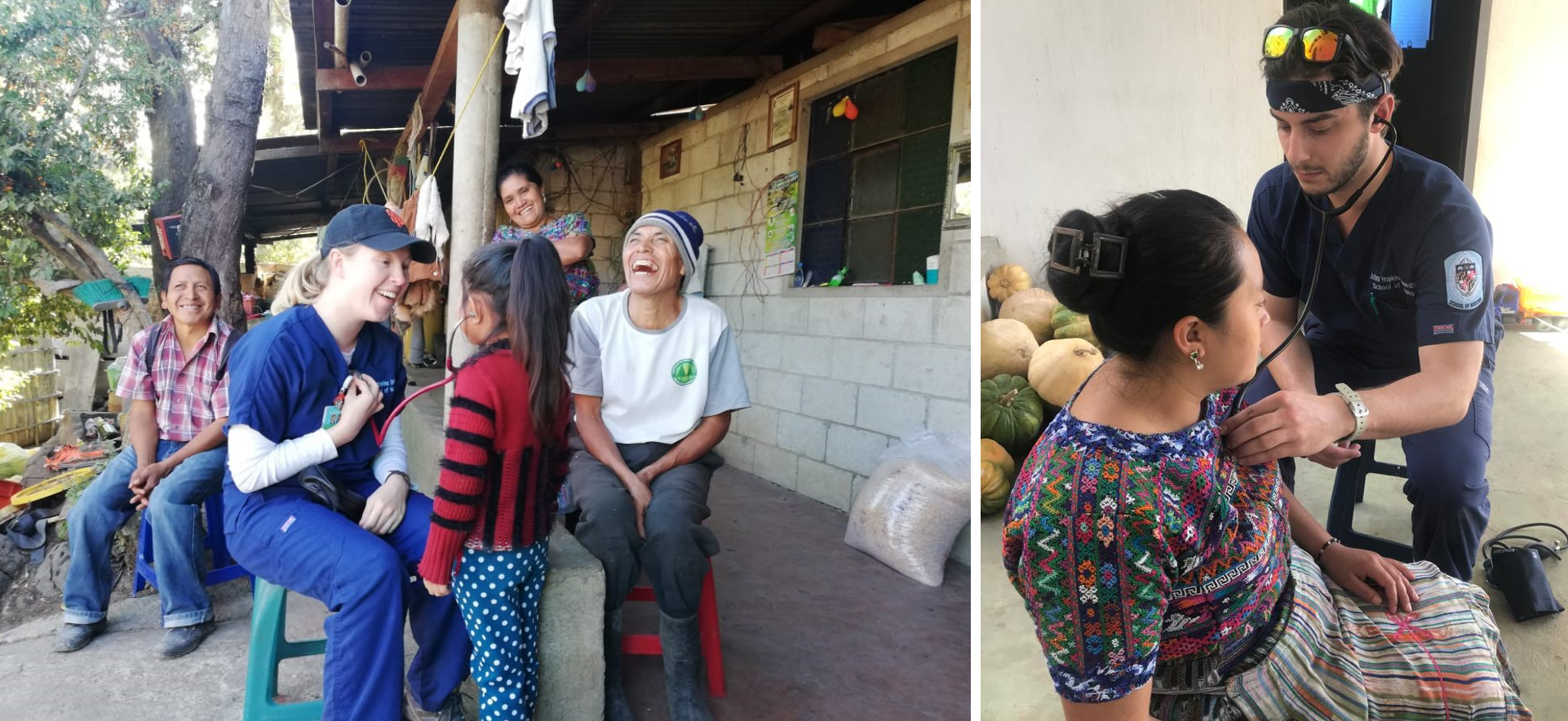Interprofessional Expertise Creates New “Retail” Care Team Partnerships
by Kelly Brooks
![]() The growing demand for “retail” clinics—walk-in clinics conveniently located in shopping areas and other easily accessible sites—is offering new opportunities for interprofessional teamwork and corporate partnerships at Johns Hopkins.
The growing demand for “retail” clinics—walk-in clinics conveniently located in shopping areas and other easily accessible sites—is offering new opportunities for interprofessional teamwork and corporate partnerships at Johns Hopkins.
Working with Walgreens, the largest drug retailing chain in the United States, an interprofessional Johns Hopkins HealthCare team is providing guidance and consultation on the existing evidence-based guidelines at the company’s Take Care Clinics—sites that are more and more frequently being used now to treat common illness like respiratory infections, ear aches, sore throats, and flu symptoms.
School of Nursing assistant professors Kathleen Becker, DNP, CRNP, and Andrea Parsons Schram, DNP, CRNP—with Hopkins Medicine colleagues Fred Brancati, MD, chief of the Division of General Internal Medicine, and Madhav Goyal, assistant professor—are currently reviewing guidelines for the conditions most often treated at Walgreens Take Care Clinics. The Hopkins team’s role is to utilize evidence-based research and national care standards in their reviews and to recommend additional best practices for management and treatment of conditions such as influenza and sinusitis.
Take Care Clinics at select Walgreens have a healthcare delivery model primarily provided by nurse practitioners. “With our shared mission, we can promote this model of care delivery and impact standards of care delivered through this Walgreens channel,” says Schram.
Since 2005, more than 6.5 million patients have been treated at the more than 360 Take Care Clinics nationwide. Operated by Take Care Health Systems, a wholly owned subsidiary of Walgreens, the Clinics are walk-in, professional healthcare centers where board-certified family nurse practitioners and physician assistants treat patients 18 months and older for common illnesses, offer preventive services such as vaccines and physicals, and are licensed to write prescriptions. The Clinics have followed evidence-based guidelines for quality patient-care delivery since they opened, and in 2009 Take Care Health Systems received full certification from the Jefferson School of Population Health for adhering to the Convenient Care Association’s quality and safety standards for retail clinics.
Becker sees the partnership as a win-win for both organizations. “Walgreens is looking to Hopkins to provide best-practice guidance for the clinics, and Hopkins sees this as an opportunity to engage with a proprietary organization and influence best-care practices,” she says. “There’s a big future for partnership here, and this is one of the first steps.”
Members of the Hopkins team also see their work as an opportunity to improve care for millions—and one that is only expected to grow. A recent study released by the Rand Corporation showed that the use of walk-in retail clinics is on the rise—having increased ten-fold in the past two years.
“Working closely with a prestigious and respected institution such as Johns Hopkins helps to further the role that retail clinics can play in providing positive patient outcomes in today’s healthcare system,” says Sandra Ryan, RN, MSN, CPNP, FAANP, chief nurse practitioner officer for Take Care Health Systems. “The partnership also continues to further Take Care Health’s goal of ensuring nurse practitioners have the ability to practice quality care to the full extent of their education and expertise.”
 Forging Policy: How Can Doulas Improve Black Maternal Health?
Forging Policy: How Can Doulas Improve Black Maternal Health? Guatemala Re-visited: Rainwater Project Shows Value of Service-learning Trips
Guatemala Re-visited: Rainwater Project Shows Value of Service-learning Trips You’re Welcome
You’re Welcome My First Teachers in Nursing School Weren’t Nurses
My First Teachers in Nursing School Weren’t Nurses Nursing Named Most Trusted Profession for 22nd Consecutive Year
Nursing Named Most Trusted Profession for 22nd Consecutive Year






